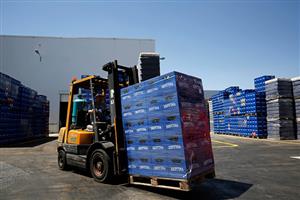
Whether you're dealing with an estate, the breakup of a partnership or a lawsuit, a business dispute appraisal can provide you with tools to prove the value of your equipment from those who would inflate or deflate its value for their own benefit. But exactly how does this type of appraisal impact your machinery value and how does it benefit your side of the situation? Here's a quick look to help you get started.
How Does a Machinery Appraisal Factor into a Business Dispute?
Let's take a look at a few situations in which a business dispute appraisal may help you prove the value of your assets. This doesn't mean that the appraiser will automatically provide you with a higher or lower figure than the other side, just one that has been calculated fairly using tested, standardized methodologies:
- A nasty divorce is pitting two sides of a business against each other. One person wants out, the other wants to keep the company. The one who wants out wants top dollar for the years they put into the business, and isn't afraid to inflate the company's value and the value of its machinery assets. The one who is staying with the company resents this manipulation and therefore wants to only pay a fair market value. This could also be the other way around, with the individual who is leaving the business only wanting what's fair while the one staying with the company deliberately lowballing the value of the business and its equipment assets. A dispute appraisal determines the actual value of the equipment.
- When a long-run business suddenly loses its owner to a heart attack or car accident, the family is suddenly faced with splitting up the business. However, some family members are willing to wait for the right buyers at a higher price while other family members want to quickly liquidate the equipment and assets in order to get on with their lives instead of dragging out the entire process. How do you determine the fair value to make everyone as happy as possible? A dispute appraisal looks at the entire situation and helps determine what would be a fair value all the way around.
- Tragedy strikes, and a worker is killed on the job at your construction site. The surviving family members sue your company, going after everything they can in their pain, and are determined to take it all. They know a little about the industry and have seen equipment like yours go for a lot of money. But what they don't understand is that your equipment is headed towards end of life or was used and abused rather badly during that fast-track project a couple years ago. How do you prove to them what the value of your machinery really is? A dispute appraisal.
By starting out with a solid grasp of your equipment's value, a business dispute appraisal gives you the verified information you need to fight for your rights in any number of different situations. However, not every person who represents themselves as an appraiser can provide you with the solid calculations and tested methodologies you need to get the job done. Make sure that you only work with a professionally-certified appraiser who has experience in your industry as well as with valuation disputes.





